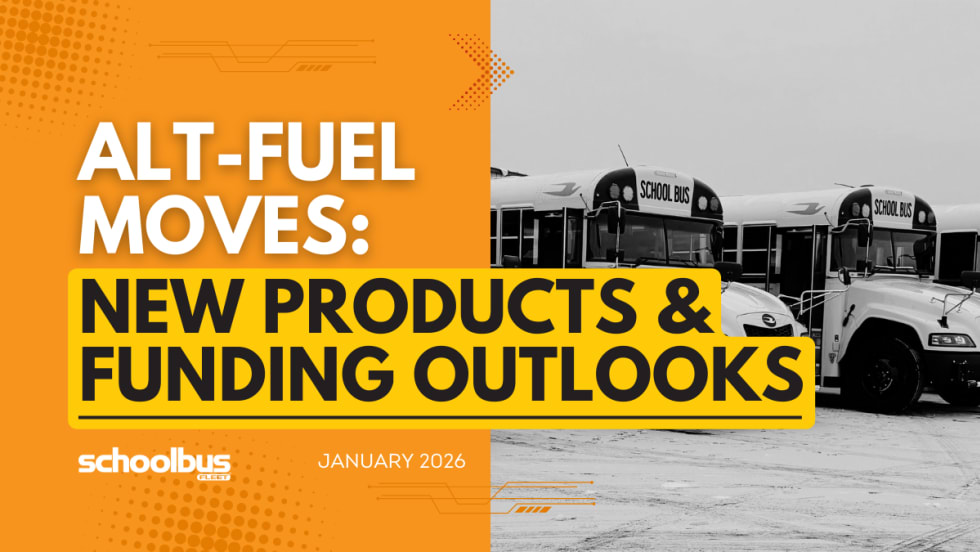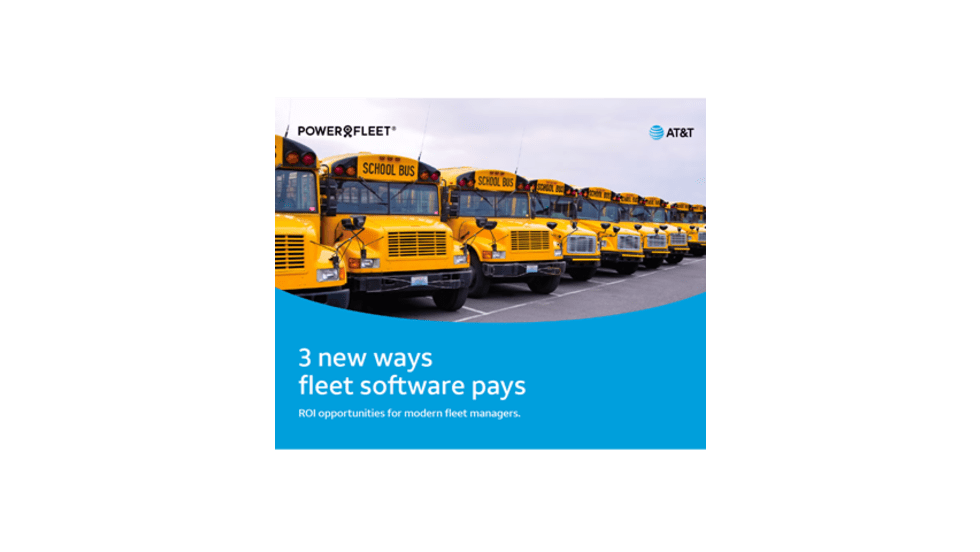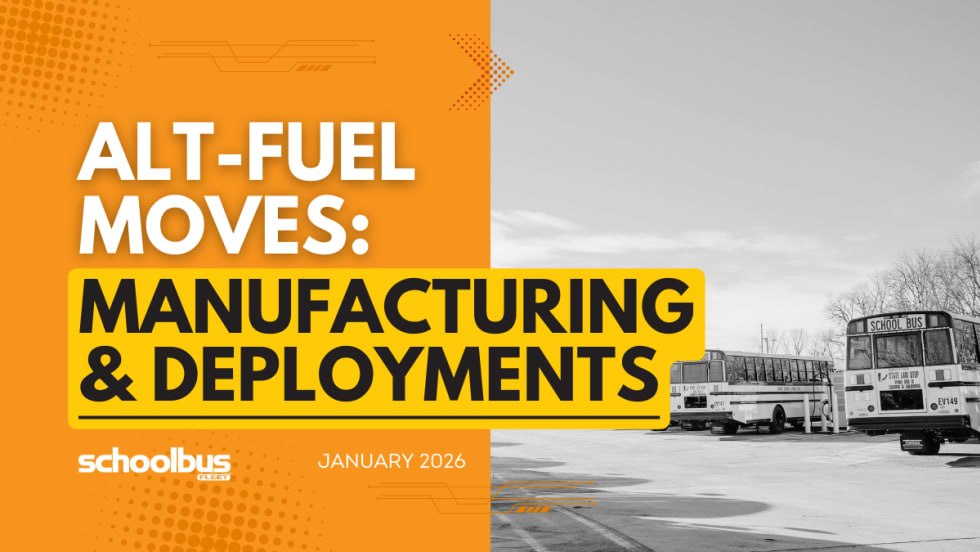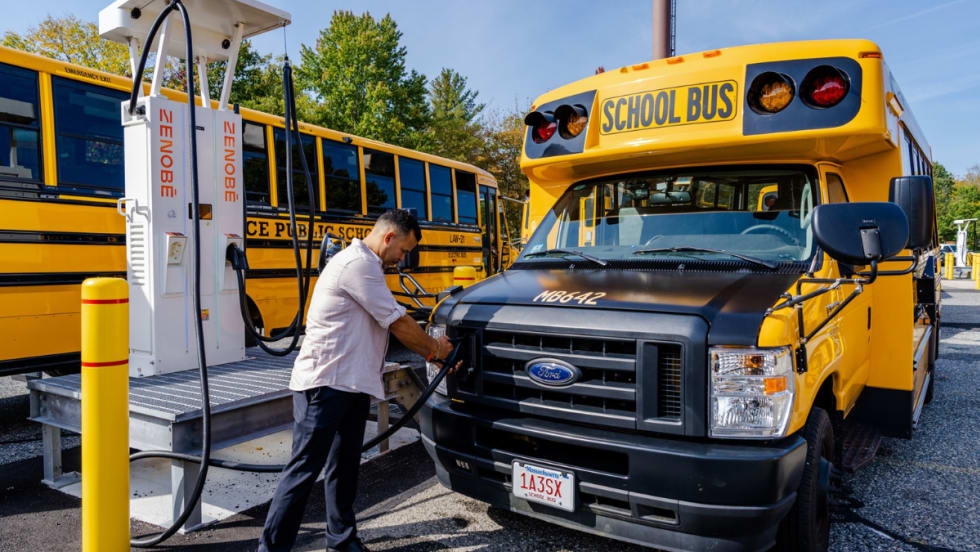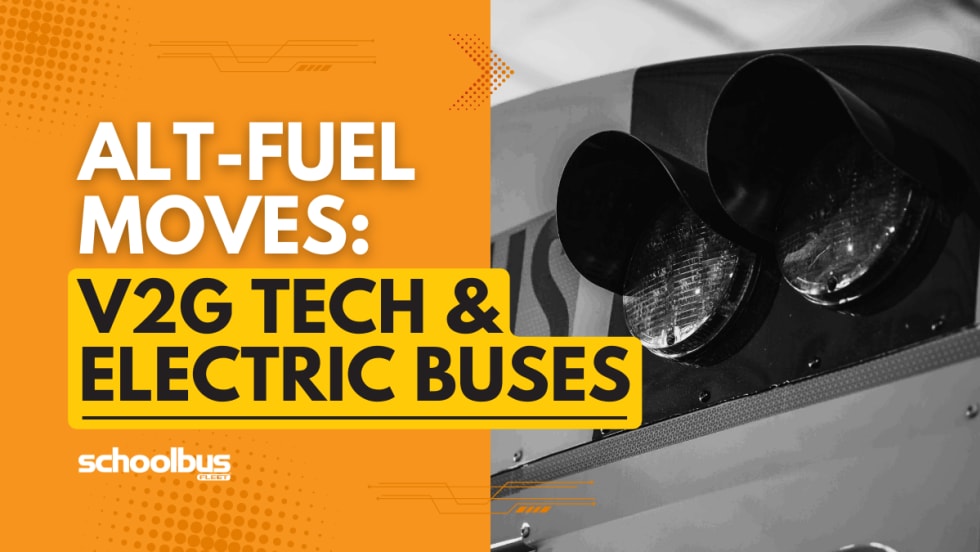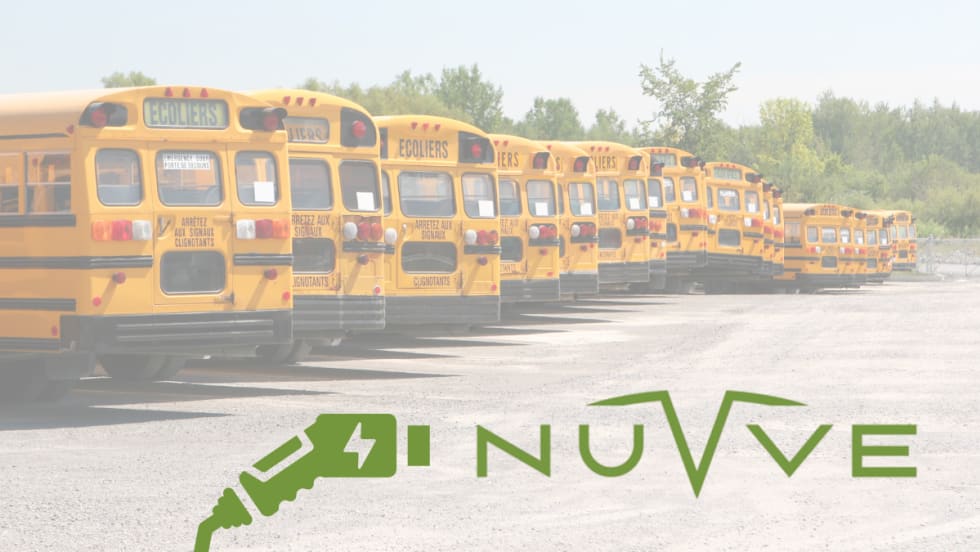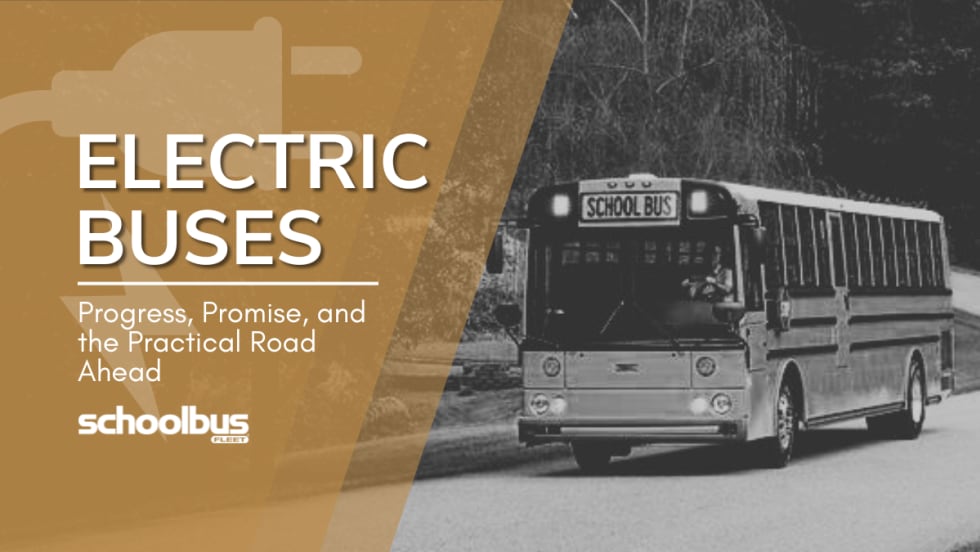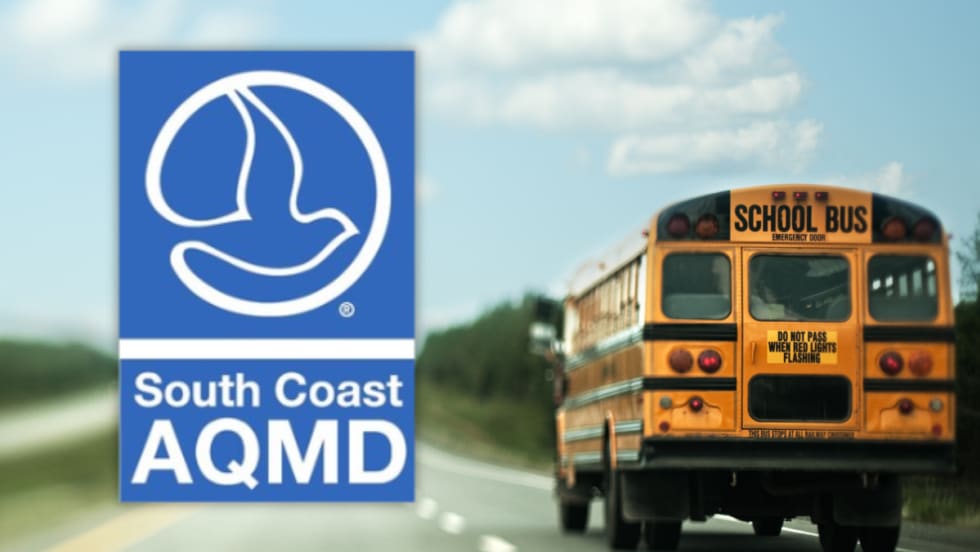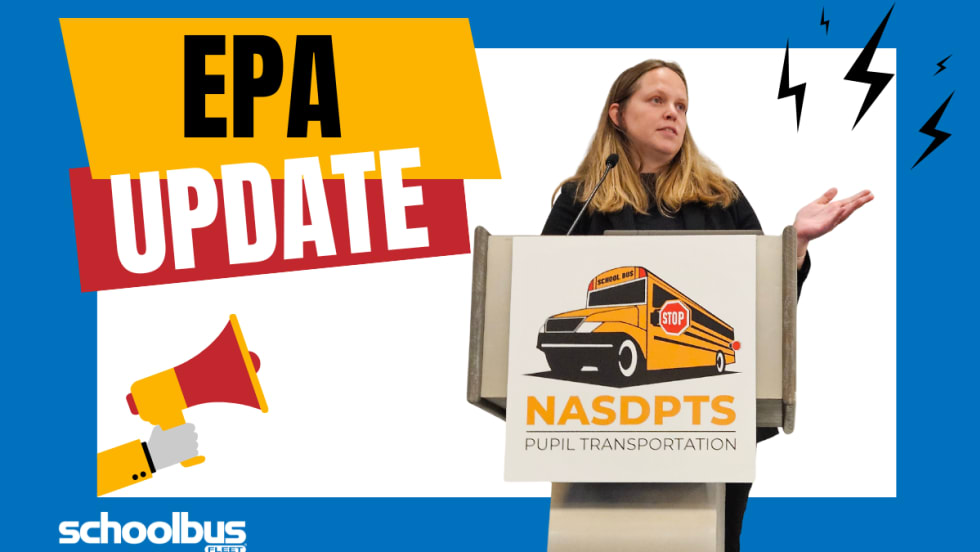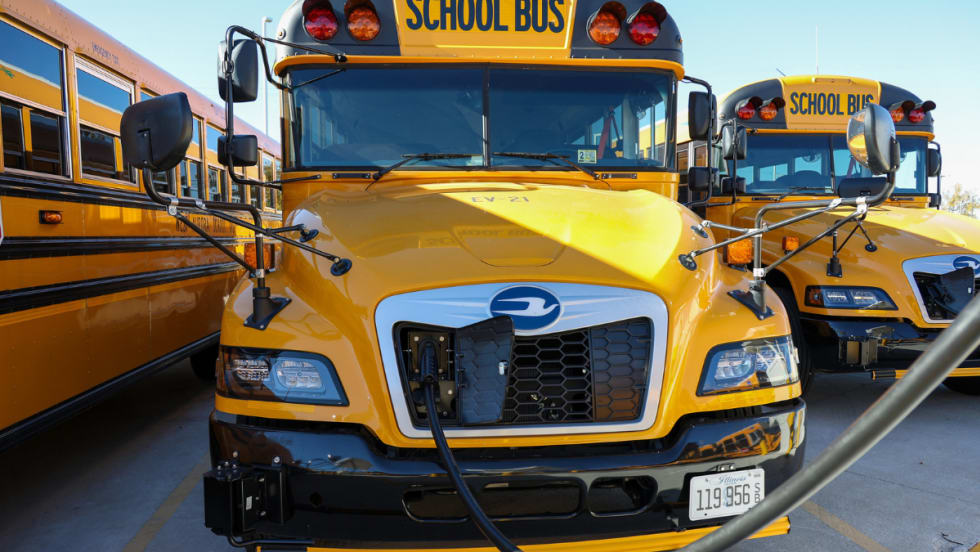New York and California topped the list of recipients for total funding, but a significant number of states in the southeastern U.S. - some that never had an electric school bus before - made it into the top 10.
It’s not much surprise that New York and California ranked first and second among states receiving funding for cleaner new vehicles under the Environmental Protection Agency’s Clean School Bus Program.
California’s often the standard bearer for green initiatives, and New York aims to purchase only electric school buses before the decade ends.
But several southern states also ranked in the top 10, including Georgia, South Carolina, Louisiana, and Mississippi.
Electric Buses Build Buzz
The complete top 10 includes:
New York, with 184 buses requested. Award total: $69,620,000.
California, with 177 buses requested. Award total: $68,295,000.
Georgia, with 149 buses requested. Award total: $50,825,000.
South Carolina, with 148 buses requested. Award total: $58,460,000.
Texas, with 144 buses requested. Award total: $50,980,000.
Michigan, with 138 buses requested. Award total: $54,060,000.
Illinois, with 123 buses requested. Award total: $48,315,000.
Louisiana, with 111 buses requested. Award total: $43,845,000.
Mississippi, with 96 buses requested. Award total: $36,390,000.
Pennsylvania, with 89 buses requested. Award total: $34,610,000.
“While it might seem surprising to some that so many southern states are among the top 10 recipients of funding under EPA’s first round of rebates under the Clean School Bus Program, it’s a reflection of a growing interest in electrification from across the country,” said Sue Gander, director of the World Resource Institute’s Electric School Bus Initiative. “This is a recognition of the air quality, health, equity, and environmental benefits that electric school buses bring to kids, drivers, and communities.”
Gander noted that Georgia and South Carolina both also are home to manufacturing sites related to electric school buses, including Blue Bird’s facility near Atlanta and the Proterra battery plant in Greenville, S.C. As a result of the federal government’s investment in the Bipartisan Infrastructure Law that led to the creation of the Clean School Bus Program, decent high-tech jobs are expected to increase in states where these new buses and their components are made.
“Of the top 10, we are excited that Louisiana is one of 12 states currently without any electric school buses that will now have at least one on the way; Arkansas, Idaho, Kansas, Kentucky, Ohio, Nebraska, New Hampshire, South Dakota, Wisconsin, West Virginia, and Wyoming, as well as Washington, D.C., are in the same situation,” she said.
Manufacturers, Dealers in the Clean Bus Funding Mix
Although many school districts and dealers applied for funding during the first round, competing for nearly $1 billion in funding for this year, several school bus manufacturers successfully applied on behalf of school districts:
Lion Electric: 41 approved applications.
Blue Bird: 33 approved applications.
Navistar/IC Bus: 22 approved applications.
Thomas Built Buses: 3 approved applications.
Lion Electric CEO and founder Marc Bedard praised the EPA announcement of rebate recipients in an October statement: “It is fantastic to see these funds being awarded and we are excited to see the massive interest in clean school buses across all 50 states. Lion would like to congratulate the EPA, along with the awardees, who will soon benefit from the adoption of zero-emission school buses.”
Lion Electric applied on behalf of six districts in Illinois, where it recently opened the company's first U.S. manufacturing plant and rolled the first Joliet-built Lion C electric school bus off the line.
Matthew Stevenson, president and CEO of Blue Bird Corporation, hailed news of the first-round awards as “a major step to reduce harmful greenhouse gas emissions and to put student and community health first.” He also forecast the company expanding electric school bus production to 20 vehicles per day by the end of 2023 to meet increasing demand.
IC Bus reported in a news release that the company helped more than 230 school districts – many in high-need or low-income areas – apply for first-round funding with customer education and grant-writing support.
“The Clean School Bus Program prioritizes electric school bus deployments to communities that will experience the most positive impact,” said Trish Reed, vice president and general manager of IC Bus. “IC Bus is committed to ensuring customers have the necessary resources to obtain the funding needed in their transition to electric. This starts with supporting our dealer network with EV and grant education.”
Cumberland, a Tennessee-based IC Bus dealer, worked with 19 customers to identify nearly 60 buses that qualified for replacement under the rebate funding.
Cumberland’s bus account manager, Ashley Scurlock, met with school boards, transportation directors, and district superintendents to help get everyone up to speed on electric school buses and the infrastructure required to keep them rolling.
“The key is to make the process simple for every stakeholder to understand, dispel the myths, and reassure our customers that we will be there to help them through the unknowns,” Scurlock said. “The education portion of this process is vital in obtaining customer buy-in and making them comfortable with the change.”
Kevin Bangston, president and CEO of Thomas Built Buses, said in a statement after the EPA announcement: “We appreciate and applaud the EPA’s efforts on the Clean School Bus Program. Their continued support allows us to accelerate electrification efforts across the nation, getting money quickly to help transition school buses to electric or zero-emission, providing immediate environmental benefits and better, cleaner rides for our kids.”
Leonard Bus Sales in New York celebrated its school transportation partners receiving $24 million in EPA funding to purchase 61 all-electric school buses via the first-year program.
Jon Leonard, company president, said: "New York state's first-in-the-nation transition to an all-electric school bus fleet is a major transformation in how schools transport students to and from school, and we're proud to assist...with the challenges that come with such a monumental change, including navigating the grant process to obtain needed funds in support of their fleet acquisition."
Leonard Bus Sales collaborated with its electrification partner, Cornice Technology, to work with school districts to apply for grant funds. They also expect to provide technical assistance when it comes to maintenance and logistics.
"We couldn't be happier with the amount of funding which was secured," Leonard said. "Leonard Bus Sales looks forward to continuing to assist our school transportation partners in taking advantage of various federal government, state government, and private funding programs so we can help make it easy for them to transition to an all-electric school bus fleet."





